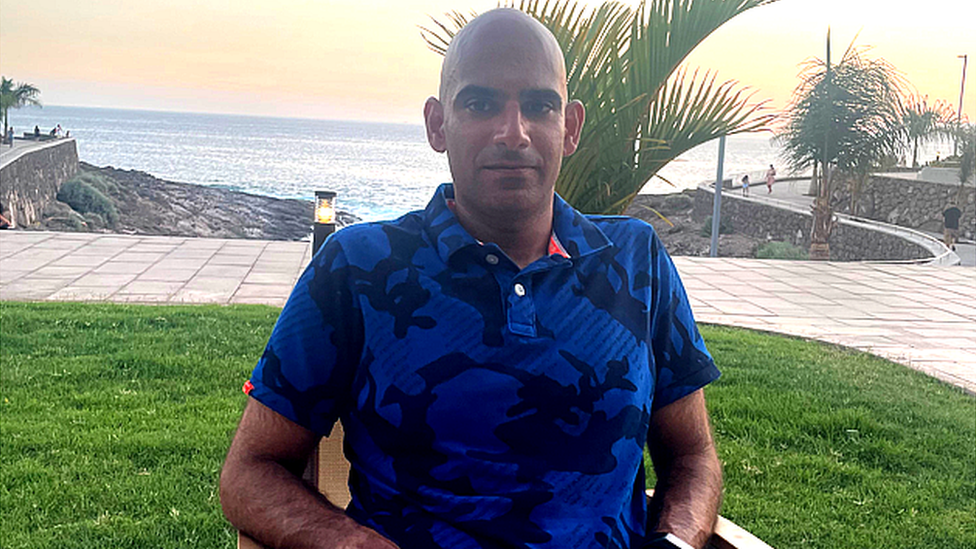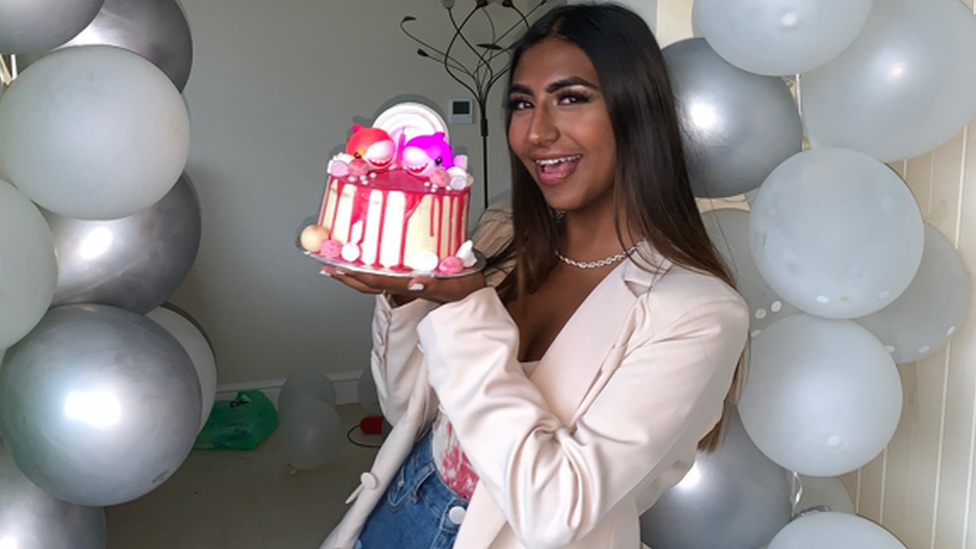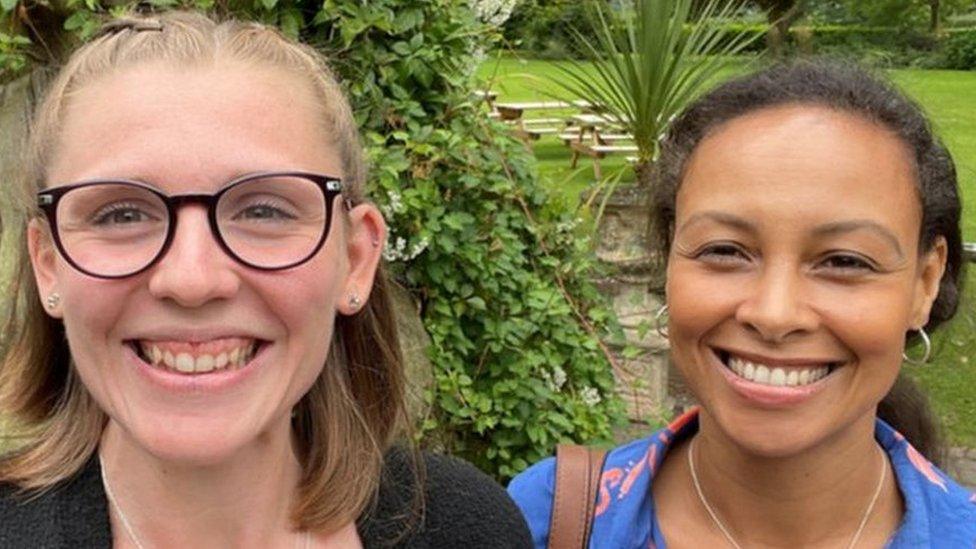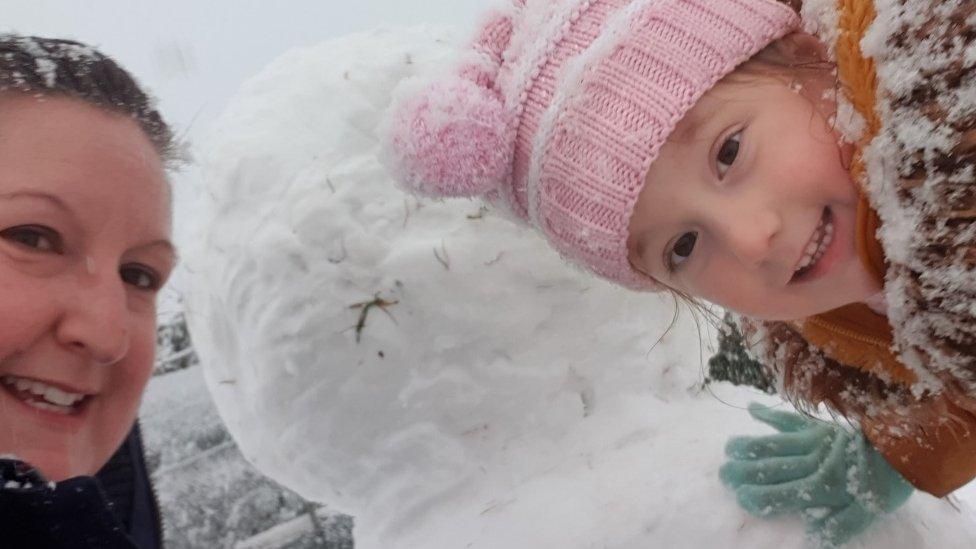Kidney donor: I call my remaining one Home Alone Kevin
- Published

Azeem Ahmad, 35, from Newcastle, became a living kidney donor for someone he did not know, in 2019.
Since Covid hit, kidney transplants and altruistic donations have dropped considerably.
NHS Blood and Transplant is urging people to think about whether they might be willing to be a donor and to share their decision with family and friends.
Azeem says, for him, it was an easy but carefully considered choice.
A healthy person can lead a normal life with only one functioning kidney.
Azeem does not know who received his kidney - but he knows he has helped improve their life.
Rare condition
More than 4,600 people, including nearly 100 children, in the UK, are waiting for a kidney transplant.
The pandemic means about 1,100 fewer patients received a kidney transplant in 2020-21 than the year before.
Most organ donations follow death but people can donate some in life - most commonly, a kidney.
Alisha Gokani, 23, from Kent, has been waiting years for a kidney transplant.

A rare condition meant her own failed before she reached her teens.
When she was 19, her mother, herself seriously ill, donated one of her kidneys - but Alisha's body rejected it.
Since then, Alisha has relied on dialysis.
And as an undergraduate, it has been difficult.
'Complete exhaustion'
"I've had to completely rearrange my life, taking time away from university initially," Alisha says, "but thankfully I was able to return.
"Every day is a struggle, as I'm faced with complete exhaustion from having treatment four times a week alongside full-time education.
"I have been told that a living donor from the same ethnicity as me would be the best possible match.
"As I have had a transplant before, my body has created a lot of antibodies, which provides extra challenges, so I could be waiting a very long time.
"If a live donor came forward, my antibodies can be removed to match the donor's, just before surgery.
"Everything could be planned and controlled for the best possible outcome.
"Living donation is a big ask and something that shouldn't be taken lightly.
"But I am kindly asking people to read more about organ donation, talk to their family and discuss their decision."
'Helping someone'
Azeem was motivated to act after reading a tweet by former Wales goalkeeper Neville Southall, external on behalf of the family of a young girl who needed a kidney.
"I thought that I should see if I could be a match and so I got in touch with the local hospital," he tells BBC News.
The doctors gave him lots of information about the procedure.
"The more I knew, the more I decided it was the right thing for me to do," Azeem says.
"Helping someone and potentially saving their life for a few days of discomfort seemed absolutely worth it.
"I was already a blood and stem-cell donor, so it felt like the right thing to do - I wanted to help."
And when tests revealed he would not be a match for the young girl, Azeem decided to go ahead with donation if another patient who did match was found.
'Right thing'
Azeem admits he was "bricking it" on the day of the operation.
"I knew that I could still change my mind," he says, "but I'm so pleased that I went through with the donation.
"I don't think it is for everyone - but for me, it was definitely the right thing to do.
"And my family and friends were really supportive about my decision when they understood how and why I had reached it."
'Doing great'
It took weeks to recover from the keyhole procedure - but Azeem is back to full health.
And his kidney function, which the doctors check regularly, is "really good".
"I've called my remaining kidney Kevin - because he is Home Alone," Azeem jokes, in a reference to Macaulay Culkin's character in the 1990 comedy film.
"He's doing great - he's grown in size and function."
'Really hard'
Azeem received a card and message from the person given his kidney, which he says was extremely moving.
"It hit me really hard," he says.
"It meant so much to me.
"Most people are prepared to give a little for the benefit of others.
"The pandemic has shown us that too."
Related topics
- Published3 October 2021

- Published23 December 2021
